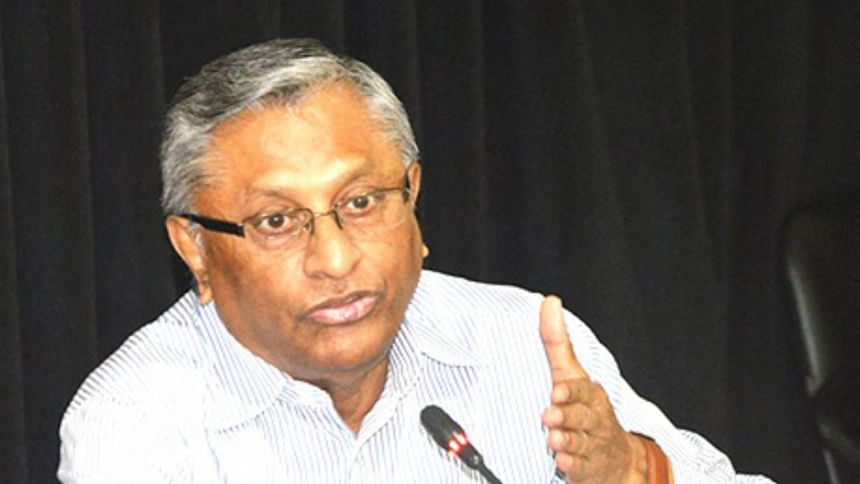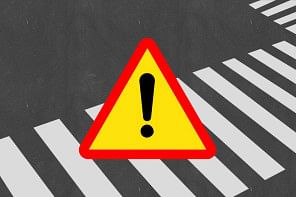Some questions on the role of NHRC

Recently, there has been much discussion about the independence and effectiveness of Bangladesh's National Human Rights Commission (NHRC) in light of the Commission's probe committee's report on the gang-rape of a woman in Subarnachar upazila of Noakhali on December 31.
The victim and her husband repeatedly told to the media and other representatives of civil society organisations that she was attacked as she voted for the party of her choice in the recent national election. But in the committee's report, no linkage was found between voting and the incident. The committee went further and stated that "there is no proof that the accused are Awami League workers or that she was raped and assaulted by the Awami League workers." The report has been severely criticised and the NHRC has been accused of failing to play its due role. Later the chief of NHRC said that it was not NHRC's report but the inquiry committee's.
Almost a decade ago the NHRC began its journey (in 2009) under the National Human Rights Commission Act, 2009. Needless to say that since its establishment, the Commission has been struggling to overcome significant administrative, legal and political challenges. There has also been a lack of consensus about the role of such a state institution. Ain o Salish Kendra (ASK) recently published a report, titled "National Human Rights Commission: Existing Challenges and Expectations of Civil Society", to reflect on the role of NHRC in 2018 in upholding human rights in the context of Bangladesh.
The report mentioned some of the institutional developments of NHRC in 2018, such as the introduction of a hotline number, importance given to diversity in recruiting new members, increase in the number of local offices, activities of issue-based committees, appointment of panel lawyers, coverage of the Commission's work in mass media, its updates on websites and social networking sites, promoting the rights of the disadvantaged section of society (i.e. persons with disabilities, third gender, children, etc.), increased engagement with UN human rights mechanisms, engagement with civil society, etc.
At the same time, it also highlighted the shortcomings: inconsistency with UN principles on national human rights institutions (known as Paris Principles 1991), limitations in the founding Act, no visible role in protecting civil and political rights, inadequate cooperation from government organs, etc. Nearly 10 years into the enactment of the existing Act, no step has been taken to revise these shortcomings: inadequate definition of human rights, lack of transparency in the election process of members, lack of complete freedom in financial matters, and limited mandate in matters of investigating allegations of rights violations against law enforcement agencies and security officials. Although the Commission, after discussing various aspects with stakeholders, has submitted a draft guideline to the law ministry, no progress has been reported on revising the Act.
As a state institution, it has greater autonomy, opportunity and mandate than non-government organisations to work on these issues. However, the Commission has struggled consistently to make use of this opportunity; rather it has prioritised economic and cultural rights, a fact which becomes apparent from the subjects it chooses for seminars and meetings. Especially in 2018, NHRC's role in ending extrajudicial killings in the anti-drug drive, and taking initiatives to ensure justice against the attacks on students, teachers, and journalists during the quota reform and road safety movements was not as per one's expectations. According to civil society, they could have done much more as per their mandate.
The Commission was also highly criticised for not providing effective opinions on the draft law and policy to ensure compliance with international human rights standards. NHRC's role to protect citizens' right to express their opinion was also not up to the mark. A form of fear has indeed gripped the citizens, trapping their freedom of expression in a cage. The adoption of the Digital Security Act has made the situation more critical. People's views online are under strict surveillance. As a national human rights institution, it is the responsibility of the Commission to inform the government about the human rights situation in the country and to play an effective role in ensuring that citizens enjoy the right to express themselves and that they are not threatened or harassed when they do so. Unfortunately, the Commission has not done anything significant in this regard. In some cases, the Commission sent recommendations to the relevant government authority but the latter did not take steps to follow those recommendations.
According to media reports, the Commission rarely ever gets any response when it asks the relevant ministry for investigation reports. When the Commission asks for an explanation of a case, the ASK report rightly mentioned that the government should provide it within the shortest time possible, to reflect its own commitment and also that of its relevant ministries and state agencies to human rights and to the Commission. The government must remember that the Commission is a state institution. For the state to retain its commitment to human rights obligations—protect citizens' human rights and ensure justice—the Commission has the mandate to provide recommendations to the government.
Civil society organisations do not expect that the Commission will be able to work on each and every human rights issue. However, they do expect that it will play a very strong role in addressing issues that deal with protecting human rights in society and ensuring the government's accountability—to convey a greater message about the basic principles of human rights. Most importantly, people should have faith in NHRC as a last resort.
The tenure of the current committee will be completed in June 2019. We expect a transparent and participatory selection process. It is also high time for the Commission to work strongly to overcome the challenges it has been facing as well as to engage in discussions with the government to take immediate and effective steps for ensuring an environment where NHRC can play its due role of promoting and protecting human rights of the citizens of Bangladesh independently.
Tamanna Hoq Riti works at the Media and International Advocacy Unit of Ain o Salish Kendra (ASK).










Comments